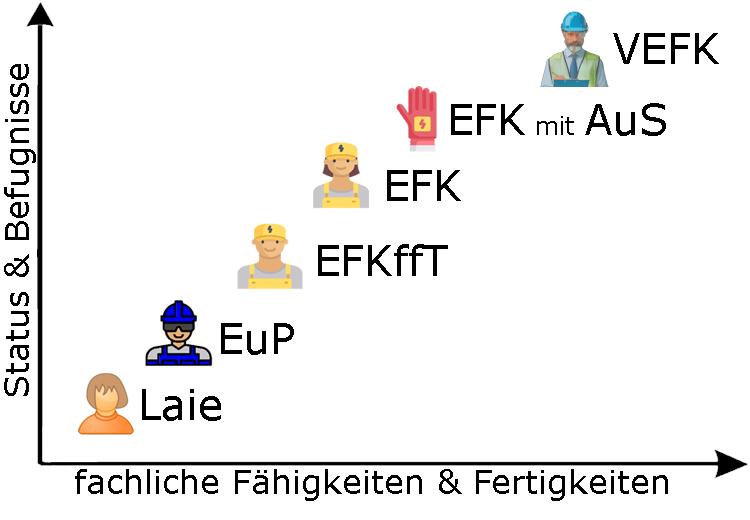chief responsible electrical specialist (CRES) – Consulting & Training
We qualify your chief responsible electrical specialist and work with you to develop your CRES organization.
Ensure the legally secure assumption of responsibility for electrical safety: from A for selection to Z for future development:
We at TCS not only support you, we do it with you!


Setting up your CRES organization
The chief responsible electrical specialist (CRES) according to DIN VDE 1000-10 assumes the company liability. This results in concrete consequences with regard to instructions and specialist supervision.
- The entire technical supervision related to electrical safety falls from the contractor to the CRES.
- The CRES is directly authorized to give instructions to all employees regarding electrical work in relation to occupational and electrical safety of man and machine.
- The CRES is exempt from any entrepreneurial instructions; neither the managing director nor the entrepreneur can overrule the CRES nor instruct the CRES to carry out or prevent a certain measure.
We set up your CRES organization together with the person responsible at electrical specialist.

CRES qualification
If an electrical specialist is not only responsible for individual work or systems at the operational level, VDE 1000-10 requires that the CRES must always be qualified as an
- Master craftsman
- Industrial foreman
- Engineer or
- Technician
in electrical engineering. However, a qualification alone does not constitute sufficient competence to allow an entrepreneur to sit back and relax. The CRES can assume company duties, but the entrepreneur’s duty of care requires a suitable candidate to be selected according to professional and personal skills and abilities. We are happy to provide basic specialist training for your CRES.
